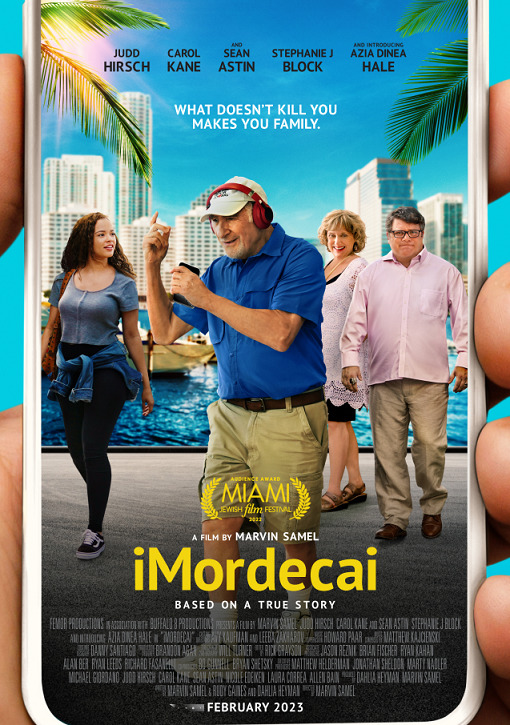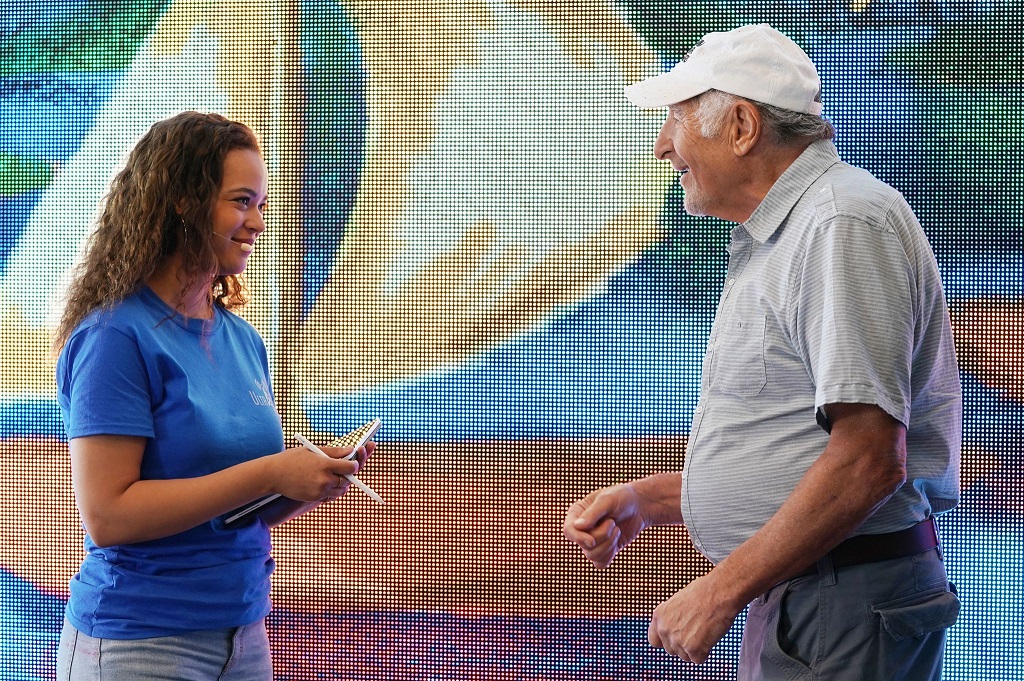
Young people often look at their grandparents and are fascinated – if not also appalled and frustrated – with how they interact with the world. That’s because their life experiences are considerably less sizable and sophisticated, whereas people in their sixties, seventies, or eighties have been through much more. Society has also changed in a big way, evolving with new technology and other advances, and while some acclimate well to new realities, others find adjusting to be a challenge. iMordecai presents a simple obstacle that helps one man confront modernity after nearly ninety years spent resisting it.
Mordecai Samel (Judd Hirsch) is a Holocaust survivor living in Brooklyn. His many years working as a plumber and a housepainter have convinced him that he knows the best approach to deal with anything, and there has to be a way to fix it on his own. His son Marvin (Sean Astin) can’t stand that he still uses a flip phone, and takes the opportunity of it finally breaking to push him to get an iPhone. Heavily opposed to the idea, Mordecai slowly lets down his walls and begins to enter the twenty-first century thanks to the kindhearted assistance offered by Nina (Azia Dinea Hale), a phone store employee who meets regularly with Mordecai to teach him how to use his new smartphone.

This film comes from the real-life Marvin Samel, who makes his directorial debut with a film directly inspired by his own father. The cinematic Marvin also owns a cigar company and is courting a buyer, and his mother Fela (Carol Kane) was diagnosed with Alzheimer’s disease, complicating Mordecai’s own relationship with the present as he is no longer able to care for his wife in the same way. A collection of humorous anecdotes and memories was enough to compel Marvin to bring his family’s story to the screen, an ode to his father’s antics and his unexpected ability to, despite his best efforts, evolve.
This is a big year for Hirsch, who, forty-two years after earning his first Oscar nomination for Ordinary People, is back in the running for playing another Holocaust survivor in Steven Spielberg’s The Fabelmans. The two characters will surely invite comparisons, but there is a distinct difference in the way that they approach what they’ve been through. Boris, the uncle who visits his family after his sister’s death in Spielberg’s film, has by definition been a part of a changing world thanks to his work in film, while Mordecai has consistently remained within the same trades, unimpressed by new technology that could change and simplify how he does things.

But, like Boris, Mordecai has layers of depth hidden within him that come out when he has the chance to recall his past. This film’s release in 2023 represents an important turning moment in history as related to the Holocaust, when there are fewer and fewer survivors still living. While Mordecai’s sessions with Nina are full of comedic highlights, it’s the serious bond that develops between them as Mordecai opens up about what he has endured that proves to be most memorable.
Nina’s response to his unfiltered sharing is particularly poignant, and a hopeful model for how younger generations can be moved to action and away from indifference by those much older than them.
Newcomer Hale delivers one of the film’s best performances.
iMordecai pairs Hirsch with another Oscar nominee whose recognition came multiple decades ago, Kane, who also recently portrayed a Holocaust survivor in Prime Video’s series Hunters. While Kane has recently portrayed outlandish characters like Lillian Kaushtupper in Netflix’s Unbreakable Kimmy Schmidt, she brings a quiet weight to Fela, who seems both lost and upset as her relationship with reality begins to change. A thin comedy on its surface, iMordecai reveals a more substantive center as it probes the dramatic underbelly of things that are often masked by humor.
Grade: B
Check out more of Abe Friedtanzer’s articles.
iMordecai opens in theaters in New York and Los Angeles on Friday, February 24th.

